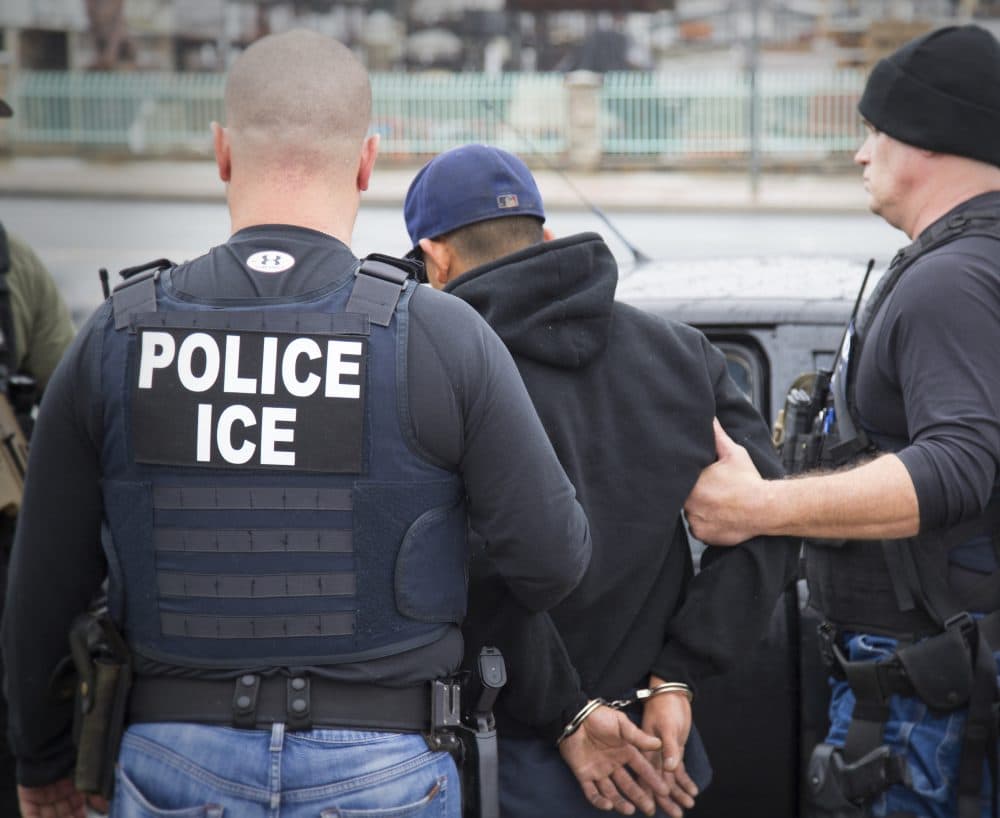Advertisement
Number Of Immigrants Without Criminal Records Arrested By ICE Triples In New England
Resume
Under President Trump, officials with U.S. Immigration and Customs Enforcement (ICE) are casting a broader net when it comes to who they're prioritizing for arrest. According to ICE data, the focus in New England appears to be more on immigrants with no criminal record.
ICE arrests of non-criminal immigrants living in New England without authorization have more than tripled so far this year.
Even before then-President-elect Trump took office, his message on immigration was clear — he planned to deport millions of immigrants living in the country without documentation. And, in an interview with "60 Minutes," Trump said he'd first focus on criminals:
What we are going to do is get the people that are criminal and have criminal records, gang members, drug dealers, we have a lot of these people, probably 2 million — it could even be 3 million -- we're getting them out of our country or we're going to incarcerate but, we're getting them out of our country, they're here illegally.
But looking at a breakdown of the arrests made by ICE since January, it's clear that non-criminals are being arrested at a higher clip. Nationwide, the number has more than doubled compared to the same time last year.
In the "Boston Area of Responsibility" — which includes all of New England — ICE has arrested more than three times as many non-criminals as of the end of April, 335, up from 104 last year.

"This administration is carrying out the mass deportation agenda that it promised on the campaign trail," says Sarah Sherman-Stokes, a clinical instructor at Boston University's Immigrants' Rights and Human Trafficking Program.
Sherman-Stokes says an increase in ICE arrests this year is unsurprising given Trump's executive orders. The action broadened enforcement priorities for ICE to include not only serious criminals but also those whose only offense is entering the country without authorization.
In 2014, then-President Obama sought to narrow enforcement priorities by focusing on "deporting felons not families." While deportations did rise to historic levels under Obama, numbers decreased toward the end of his second term. Still, Sherman-Stokes says some of the enforcement patterns we're seeing now began well before Trump's executive orders.
"You know, I'm surprised that the numbers have gone up so dramatically," she says, "although, they are not surprising insofar as they are a continuation of the trajectory that we were already on under the Obama administration."
Of particular concern now, Sherman-Stokes says, is the spike in arrests of non-criminals.
"When the system of priorities collapses on itself, as it has done under this administration, how does law enforcement focus on serious threats if they're focusing on everyone? It's impossible," she says.
The Trump administration has said it hopes to beef up the number of ICE agents in an effort to support the new enforcement priorities.
This segment aired on May 31, 2017.
